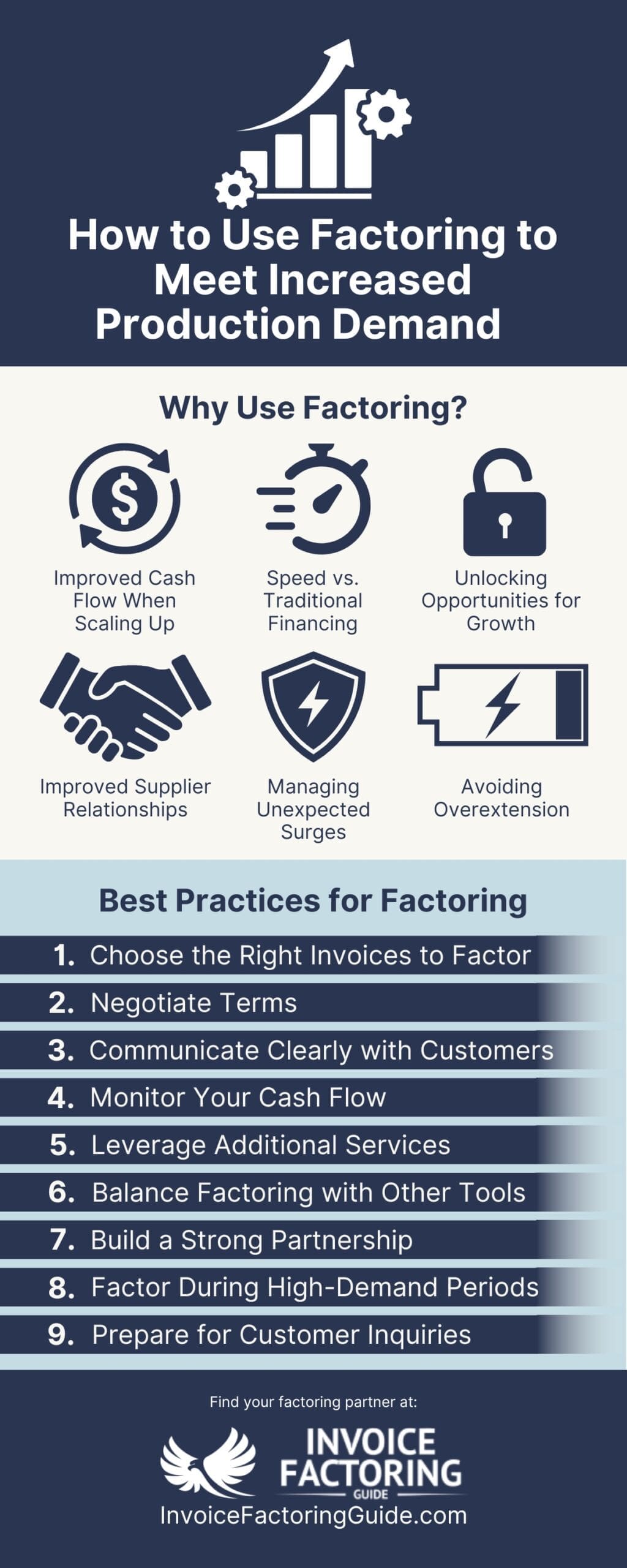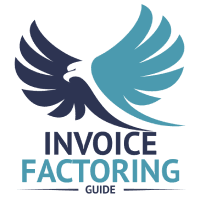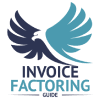
Scaling up production can be stressful. Managing supplier payments, adding more staff, and hitting deadlines while waiting for customers to pay strains your cash flow. Instead of scrambling for loans or stretching your resources thin, there’s another option. Factoring provides you access to the cash you need, right when you need it, to keep things running smoothly. In this article, we’ll look at how factoring works and why it might be exactly what your business needs to keep up with growing production demand.
The Basics of Factoring
Factoring is a financial transaction where your business sells its outstanding invoices to a third-party company, known as a factoring company, at a discount. Instead of waiting 30, 60, or even 90 days for customers to pay, you get most of your cash upfront, usually within 24 to 48 hours. The factoring company then collects the payment directly from your customers.
How Factoring Works
The process is straightforward. You deliver your products or services, generate an invoice, and instead of waiting for the customer to pay, you submit the invoice to the factoring company. The factoring company advances you a percentage of the invoice value, usually 60 to 95 percent, and when your customer pays, you receive the remaining balance minus the factoring fee.
Factoring vs. Traditional Loans
One common misconception is that factoring is the same as taking out a loan, but it’s not. Unlike loans, factoring doesn’t create debt on your balance sheet because you’re essentially getting paid for work you’ve already completed. This can be a huge advantage, especially if your business doesn’t qualify for traditional financing due to poor credit or lack of collateral.
Why Use Factoring to Meet Increased Production Demand
There are many reasons why factoring is the ideal choice for increased production demand. We’ll explore a few below.
Improved Cash Flow When Scaling Up
When your business suddenly faces higher demand, whether from a new contract, seasonal uptick, or expansion, cash flow can become a major pain point. Factoring allows you to access the cash tied up in unpaid invoices immediately, which means you can invest in raw materials, hire more staff, or purchase additional inventory without delays.
Speed vs. Traditional Financing
Unlike bank loans, which can take weeks or even months to secure, factoring provides almost instant access to funds. For businesses with thin margins or rapid growth, this speed can change everything. You don’t have to wait around for lengthy credit checks or approvals. The focus is on the creditworthiness of your customers, not your business. This is especially beneficial for small to mid-sized companies that might not have extensive credit histories.
Unlocking Opportunities for Growth
Factoring doesn’t just help you keep up with current demand; it also enables you to take on new opportunities that you might otherwise have to turn down. For instance, say you get a one-time chance to fulfill a large order for a new client who requires fast delivery. Instead of missing out because your cash flow is tied up elsewhere, factoring can provide the liquidity needed to make it happen.
Improved Supplier Relationships
Cash on hand means you can pay your suppliers quicker, which often leads to better terms, early payment discounts, or priority service. Maintaining these strong relationships can be a hidden competitive advantage, especially in industries where supply chain delays can cripple your ability to meet demand.
Managing Unexpected Surges
Unexpected spikes in demand can be both a blessing and a logistical headache. For example, food manufacturers often see sudden surges due to seasonal trends, promotions, or changes in consumer behavior. Factoring allows them to respond quickly, keeping shelves stocked and maintaining good relationships with retailers without scrambling for cash.
Avoiding Overextension
Scaling up production can be risky if your finances are stretched thin. Factoring lets you grow sustainably by providing immediate working capital without increasing your debt load. This keeps your financials healthy and makes it easier to handle the costs of growth, like increased payroll, overtime, or expedited shipping.
The Factoring Process
Getting approved and started with factoring is a simple process. Below, we’ll explore what’s involved and the documents to have ready.
The Factoring Process: A Step-by-Step Guide
First, we’ll review the process so you’ll know what to do and what to expect when you decide to use factoring for your business.
1. Evaluate Your Invoices
Not all invoices are eligible for factoring, so the first step is to identify which ones make sense to factor. Ideally, you’ll want to factor invoices from customers with good credit and a reliable payment history, as factoring companies base their decisions largely on your customers’ creditworthiness.
2. Choose a Factoring Company
Factoring companies aren’t all the same. Some specialize in certain industries, offer different advance rates, or have varying fee structures. Look for a company with a solid reputation, transparent terms, and experience in your industry. For example, if you’re in manufacturing, you’d want a factoring company that understands the unique challenges of production cycles. We can help you with this – request a free quote to get started.
3. Submit Your Application
The application process is usually straightforward, requiring basic business information, financial statements, and details about the invoices you want to factor. Unlike traditional financing, the approval process is quick and can often be completed within a single day because the emphasis is on your customers’ ability to pay, not your business’s credit score.
4. Submit Invoices
Once approved, you’ll send your chosen invoices to the factoring company. This can often be done electronically, streamlining the entire process. The factoring company will verify the invoices to ensure they’re valid and that your customers haven’t raised disputes or returned goods.
5. Receive Your Advance
After verification, the factoring company will advance you a percentage of the invoice value, typically between 60 and 95 percent. For example, if you have a $100,000 invoice, you might receive $80,000 upfront. This cash infusion allows you to immediately reinvest in your operations, such as purchasing raw materials or hiring additional staff.
6. Let the Factoring Company Collect from Your Customers
The factoring company takes over the responsibility of collecting payment directly from your customers. This is a key difference from loans. You’re not paying back the factoring company; instead, your customers are. You can continue focusing on your business without the hassle of chasing down payments
7. Receive the Remaining Balance
Once your customer pays the invoice, the factoring company will send you the remaining balance, minus their fee. Fees can vary but generally range from one to five percent of the invoice value, depending on factors like the customer’s creditworthiness, the length of time it takes for payment, and your overall volume of factored invoices.
8. Maintain an Ongoing Relationship
Many businesses use factoring continuously, factoring new invoices as they’re generated. This creates a steady flow of cash that can be particularly useful when scaling up or managing fluctuating demand. Establishing a long-term relationship with your factoring company can also lead to better terms over time.
Key Documents Needed
Although factoring companies don’t require the same kind of extensive documentation that banks do, you should have a few common items ready.
- Accounts Receivable Aging Report: This report shows your unpaid invoices and the length of time they’ve been outstanding.
- Customer Credit Information: Some factoring companies will want to see credit information or history for the customers whose invoices you’re factoring.
- Proof of Delivery/Service Completion: You’ll need to provide evidence that the goods or services were delivered as agreed upon.
Best Practices for Using Factoring to Meet Increased Production Demand

Following a few best practices when factoring for increased production demand can help you maximize the benefits and have a smoother process.
Choose the Right Invoices to Factor
Prioritize factoring invoices from reliable customers with good payment histories. This reduces the risk of complications and helps keep your factoring costs down.
Negotiate Terms
Understand the full scope of fees, not just the headline rates. Watch for hidden costs like administrative fees, early termination charges, or minimum factoring volumes, and negotiate where possible.
Communicate Clearly with Customers
Inform your customers about the factoring arrangement to prevent any confusion. Clear communication ensures they understand the payment process and keeps your relationships strong.
Monitor Your Cash Flow
Use the cash infusion from factoring wisely. Focus on expenses directly tied to meeting increased production demand, like raw materials, labor, or inventory. Avoid diverting funds to non-essential costs.
Leverage Additional Services
Many factoring companies offer value-added services like credit monitoring and receivables management. Use these tools to gain insights into your customers’ payment behaviors and make data-driven decisions.
Balance Factoring with Other Financial Tools
Integrate factoring into a broader cash management strategy. For example, reserving traditional loans for large one-time expenses like real estate or equipment and factoring.
Build a Strong Partnership with Your Factor
Developing a solid relationship with your factoring company can lead to better terms and more tailored support as your business scales. A reliable partner will understand your industry’s nuances and provide guidance specific to your growth needs.
Factor Regularly During High-Demand Periods
Utilize factoring consistently when production ramps up. This ensures a steady cash flow to handle increased costs without putting undue pressure on your cash reserves.
Prepare for Customer Inquiries
Be ready to address any questions from customers regarding the change in payment handling. Position factoring as a strategic decision that allows your business to meet their needs faster and more efficiently.
Evaluating Factoring Companies
Knowing how to evaluate factoring companies will help ensure you choose the right partner for meeting increased production demand.
Assess Industry Experience
A factoring company that understands your industry will be more equipped to handle your specific cash flow needs and challenges. For example, a company familiar with manufacturing will better understand production cycles and the urgency of meeting order deadlines.
Look for factoring companies with a proven track record in your sector, and ask for references or case studies from businesses similar to yours.
Compare Advance Rates and Fees
Advance rates (the percentage of the invoice value you receive upfront) and fees can vary significantly between factoring companies. Typical advance rates range from 60 to 95 percent, but some companies offer higher rates depending on your business and customer profile.
Don’t just focus on the advance rate; look at the total cost, including factoring fees, administrative fees, and any hidden costs. Ask for a clear breakdown of all fees before signing any agreement.
Understand the Contract Terms
Some factoring companies require long-term contracts with minimum volume commitments, which can be restrictive if your production demand fluctuates.
Opt for flexible terms that align with your business needs, such as month-to-month agreements or contracts that allow you to factor only when necessary, without penalties.
Evaluate Customer Service and Support
The quality of customer service can impact your overall experience. You want a factoring partner who is responsive, easy to work with, and proactive in addressing any issues.
Test their responsiveness by asking questions during the evaluation process. Check online reviews or ask current clients about their customer service experiences.
Check for Additional Services
Some factoring companies offer additional services like credit checks on your customers, collections support, and invoice preparation, which can be valuable for your business.
Consider whether these services add value to your operations. For example, credit checks can help you assess the risk of extending terms to new customers, while collections support can save your team time.
Examine Their Collection Approach
Since the factoring company will be interacting directly with your customers to collect payments, their approach can impact your client relationships.
Ensure the factoring company handles collections professionally and maintains a tone consistent with your brand. Ask how they handle late payments or disputes and whether you retain some control over the process.
Review Funding Speed
One of the main benefits of factoring is quick access to cash. Some companies offer same-day funding, while others may take a few days, which can impact your ability to ramp up production swiftly.
Confirm their funding timelines and ensure they meet your business’s needs, especially during periods of high demand when cash flow is critical.
Consider Technology Integration
Factoring companies that use advanced technology can streamline the invoicing and funding process, making it easier for you to manage your accounts receivable.
Look for companies that offer online portals, real-time invoice tracking, and seamless integration with your existing accounting or ERP systems. This will save time and reduce errors in managing your factored invoices.
Check for Scalability
As your business grows and production demands increase, your factoring needs may change. You want a factoring company that can scale with you, offering higher funding limits and adaptable terms.
Ask about their maximum funding limits and whether they can accommodate larger volumes as your business expands. It’s important to have a partner that won’t limit your growth potential.
Read the Fine Print
Factoring agreements can contain clauses that may not be immediately apparent, such as early termination fees, renewal terms, or personal guarantees.
Review all contract details carefully or consult with a financial advisor or legal professional to ensure there are no surprises that could affect your business down the line.
Factoring as a Long-Term Strategy vs. Short-Term Solution

Factoring can be leveraged as both a long-term business strategy and a short-term solution, depending on your needs and goals.
Short-Term Solution: Bridging Cash Flow Gaps
Factoring works well as a short-term fix when you’re dealing with temporary cash flow challenges, such as ramping up production for a large order, managing seasonal demand spikes, or covering unexpected expenses.
Benefits of Leveraging Factoring for Short-Term Needs
You get immediate access to cash without taking on debt, making it easier to respond quickly to increased demand without waiting weeks or months for customer payments. This can be especially valuable when seizing time-sensitive opportunities, like last-minute bulk orders or supplier discounts.
Long-Term Strategy: Supporting Sustained Growth
Factoring can be a powerful long-term tool for businesses that consistently face extended payment terms, rapid growth, or industries where delayed payments are the norm, such as manufacturing, wholesale, or food production.
Benefits of Leveraging Factoring as Part of a Long-Term Strategy
By integrating factoring into your ongoing financial strategy, you maintain a consistent cash flow that allows for smooth, sustained growth. This approach can help you expand production capacity, enter new markets, or continuously fund your operations without the stress of fluctuating cash reserves.
Evaluating Costs Over Time
For short-term needs, the fees associated with factoring are often outweighed by the immediate benefits, such as preventing production delays or taking advantage of growth opportunities. In these cases, the cost is a small price to pay for keeping your business operations running smoothly.
When used as a long-term strategy, it’s crucial to evaluate the ongoing costs of factoring compared to other financing options. While factoring fees can add up, they might still be more advantageous than high-interest loans or equity financing, especially if your business relies on a continuous cycle of production and sales.
Customer Perceptions and Relationships
For temporary use, customer perceptions of factoring are usually not a major concern. However, consistent factoring can sometimes raise questions among clients if they’re regularly interacting with a third-party collector.
When factoring is a long-term part of your financial strategy, it’s important to maintain transparency with your customers and choose a factoring partner that aligns with your business values. A reputable factoring company can enhance your cash flow without negatively impacting customer relationships.
Balancing Factoring with Other Financing Tools
In short-term use, factoring can complement other financing methods, like short-term loans or lines of credit, offering a quick solution when immediate cash is needed.
For long-term use, consider how factoring fits into your overall financial ecosystem. Businesses often blend factoring with traditional financing, using it primarily during high-demand periods while relying on other funds for stability during slower times.
Scalability and Flexibility
Factoring’s flexibility allows you to factor as much or as little as needed, making it a great tool for addressing sudden spikes in demand.
As your business grows, factoring can scale with you. A good factoring partner will offer higher funding limits, adaptable terms, and continued support to meet your evolving production needs.
Impact on Business Stability
Factoring provides quick relief, helping you meet immediate production goals and manage temporary financial pressures.
It also contributes to a stable cash flow, enabling you to plan and grow strategically. Consistent cash flow means fewer disruptions to production, more timely payments to suppliers, and the ability to maintain healthy working relationships across the board.
Be Prepared for Increased Production Demand with Factoring
Keeping up with increased production demand is no easy feat, especially when cash flow becomes a constant hurdle. Factoring offers a powerful, flexible solution by turning your receivables into ready cash, enabling your business to stay agile, scale efficiently, and seize new opportunities without the delays and complexities of traditional financing. By maintaining a steady cash flow, you can keep your production lines moving, strengthen supplier relationships, and navigate the challenges of growth with confidence. Partnering with an experienced factoring company ensures that you maximize these benefits, as they bring expertise, speed, and tailored solutions that align with your unique business needs.
Invoice Factoring Guide can connect you with a trusted factoring partner to keep your business on track. Get started today by requesting your complimentary factoring quote.
FAQs on Factoring for Production Demand
How does factoring improve manufacturers' cash flow?
Factoring improves cash flow by converting unpaid invoices into immediate cash, providing manufacturers with the funds needed to keep production lines running. This steady cash flow allows businesses to pay suppliers on time, manage inventory efficiently, and avoid production delays, ensuring that they can meet increased demand without financial stress.
Can factoring be used to fund inventory purchases during peak demand?
Yes, factoring provides immediate funds that can be used to purchase inventory during peak demand. By converting invoices into cash, businesses can buy raw materials in bulk, maintain optimal stock levels, and avoid supply shortages. This ensures production continues smoothly, even during high-demand periods, without disrupting operations.
What are the benefits of factoring for scaling production operations?
Factoring offers flexible financing that grows with your business, providing quick cash access to support scaling operations. It helps fund increased production, manage cash flow, and maintain supplier relationships, all without adding debt to your balance sheet. This financial agility makes it easier to expand operations efficiently and sustainably.
How quickly can factoring provide funds for increased production needs?
Factoring can provide funds within 24 to 48 hours of invoice submission, making it one of the fastest financing options available. This quick turnaround is crucial when production demands spike, allowing businesses to immediately access the cash needed to purchase supplies, pay workers, and keep up with increased output.
Is factoring a good option for managing production spikes in manufacturing?
Yes, factoring is an excellent option for managing production spikes because it provides rapid access to working capital without the delays of traditional financing. It helps manufacturers scale operations quickly, meet tight deadlines, and maintain cash flow stability, all of which are essential during periods of increased production.
How does factoring help with supply chain management during production growth?
Factoring improves supply chain management by ensuring timely payments to suppliers, securing priority access to materials, and enabling bulk purchases at discounted rates. This financial support helps businesses maintain strong supplier relationships, avoid stockouts, and keep production schedules on track during periods of growth.
What industries benefit most from factoring when scaling production?
Industries that benefit most include manufacturing, textiles, food and beverage, consumer goods, and construction materials. These sectors often face rapid production demands and need immediate cash flow to scale. Factoring provides these industries with the liquidity to meet increased orders and maintain operational efficiency.
How can factoring improve manufacturers' operational efficiency?
Factoring enhances operational efficiency by stabilizing cash flow, allowing manufacturers to pay suppliers on time, maintain optimal inventory levels, and avoid production halts. This financial predictability helps streamline processes, reduce downtime, and support consistent production, making operations more efficient and responsive to market demands.
What are the practical advantages of using factoring to fund production increases?
Factoring provides immediate cash without incurring debt, supports inventory purchases, scales with your business needs, and helps maintain supply chain continuity. It allows companies to respond swiftly to market opportunities, manage production spikes, and improve overall financial stability, making it a practical choice for funding growth.

About Invoice Factoring Guide
Related Articles
Get an instant funding estimate
Results are estimates based on the calculated rate and the total invoice amount provided.
Actual rates may vary.
Request a Factoring Rate Quote
PREFER TO TALK? Call us at 1-844-887-0300










